In August 1988, a black man named Walter McMillian, known as Johnny D, was sentenced to death for the murder of a white teenage girl in Monroeville, Alabama.
His trial lasted less than two days.
Mr McMillian was with his family miles away when Ronda Morrison was killed. But it didn't matter.
He was found guilty - based on the false testimony of a criminal, and despite accounts from several black witnesses who could vouch for his whereabouts at the time of the murder - and sentenced to death by electrocution.
He returned to death row, having already served his time on bail there after his arrest a year earlier; guilty until proven innocent.
The story is now being played out on the big screen in Just Mercy, starring Jamie Foxx as McMillian and Michael B Jordan as Bryan Stevenson, the man who founded America's Equal Justice Initiative (EJI), and who fought for the truth to come out.
Raw and powerful, the film tells their stories: Stevenson a young black lawyer fresh out of Harvard, setting out to help death-row inmates and challenge the racial prejudice he too experiences; McMillian a condemned man who has lost hope in the system he knows is weighted against him.
Stevenson's fight for justice for McMillian provides the heart of the narrative to Just Mercy, but the film lays bare the horrifying fact that this tragic story is no one-off. McMillian's case is just one example of the systemic racial bias that ran rife through America's justice system.
More than 30 years later, Stevenson is still fighting.
At a screening of the film set up in London by the UK's Urban Lawyers charity, which works to improve diversity in the legal profession, he is speaking alongside Foxx and Jordan.
"I don't think we've seen any change really on this presumption of dangerousness and guilt that gets assigned to black and brown people in America," he says.
"If you haven't been to the States, you should know when you come to the States; you can be a lawyer here in the UK, you can be a doctor, you can be an educator, but in the States, you're going to be in situations where you're going to have to navigate a presumption of dangerousness and guilt."
Stevenson gives an example from his time in court. "I had my suit and tie on and went into this courtroom, the first time I've ever been in this courtroom. I sat down at the defence counsel's table and when the judge walked out and he saw me sitting there, he got angry. He said, 'Hey, hey, hey, hey, you get back out there in the hallway. I don't want any defendants in my courtroom without their lawyer.'
"I had to apologise. I said, 'I'm sorry, your honour, I didn't introduce myself. My name is Bryan Stevenson, I am the lawyer.' And the judge started laughing and the prosecutor started laughing, and I made myself laugh because I didn't want to disadvantage my client - a young white kid I was representing.
"Afterwards I was thinking, what is it when this judge saw a middle-aged black man in a suit and tie sitting at the defence counsel table [that] it didn't even occur to him, that's the lawyer. What it is is this presumption of dangerousness and guilt. It is this narrative of racial inferiority, this ideology of white supremacy.
"When you have to keep navigating all of that stuff, [when] you have to keep worrying about calming down other people because they are afraid of your blackness, it gets exhausting. That's the thing that hasn't changed.
"I think there's still a lot of work to do. We need an era of truth and justice in America. I think you need it in the UK, too."
Stevenson set up the EJI, a non-profit organisation based in Montgomery, Alabama, to provide legal representation to people who have been illegally convicted, unfairly sentenced or abused in state jails and prisons, and works to challenge the death penalty.
As well as racial injustice, Just Mercy highlights the monstrosity of capital punishment, innocent or not; a scene involving one of McMillian's fellow death row inmates, Herb Richardson, is one of the film's many heart-breaking moments.
His is also a true story.
For every nine people executed in the US, one person on death row has been exonerated, Stevenson says. Twenty-nine states - more than half - still have the death penalty. According to the Death Penalty Information Center, 167 people who might have been killed have been exonerated since 1973.
"We've represented children prosecuted as adults," says Stevenson. "That's another issue we're dealing with that's not in this film, but we've got 13 states in America with no minimum age for trying a child as an adult.
"So I represent nine and 10-year-old kids who are looking at 50 and 60-year prison sentences in adult prisons. I represent 13 and 14-year-old children who've been sentenced to life imprisonment without parole. I've represented 14-year-olds sentenced to death by execution."
Stevenson says he was initially reluctant to see his story translated to the big screen, worried it might receive the Hollywood treatment to make it more entertaining. But after meeting Jordan, Foxx and director Destin Daniel Cretton, he was satisfied they cared.
"When you see Jamie playing my client, you see the humanity and the dignity of people I've been representing in jails and prisons for decades," he says. "When you see Michael perform, they're real words."
Foxx, who won an Oscar for his portrayal of Ray Charles in Ray in 2005, says for him, Just Mercy was personal; he tells the story of how his own father was jailed.
"My father, who was an educator for 25 years, they put him in jail for $25 worth of illegal substance," he says. "They put him in jail for seven years. You know, this is a man who educated people in the city.
"And so there he is in jail next to some of the kids that he actually mentored... I don't like visiting jail. I wrote a letter to my father, I said I'm not gonna come see you, I don't wanna see you like that because I see you as a king."
Since his release, Foxx's father has lived with his famous Oscar-winning son.
"I could tap into this story, not necessarily easily, but it's close to home," Foxx says. "I don't want to oversell it, but we're trying to knock down that perception of what you see when you see a black man."
He goes on to tell what he calls his "pheeew" joke.
It goes like this: Jamie Foxx gets into a lift in a hotel in Chicago, hoodie on, covering part of his face. A group of women, white, evidently scared, minimise themselves as far into one corner as they can go, until…
"Oh!" he hears one of the women exclaim, the relief palpable. "It's Jamie Foxx." The actor mockingly wipes his brow. "Pheeew."
"It's a joke," he says, cutting through the laughter from the audience. "But at the same time, [the women] were really frightened. And that's why this movie is so important."
Jordan, who rose to fame in films such as Creed and Black Panther, says he has been "forever changed" by being a part of Just Mercy.
"I think we all have a certain perspective of what the criminal justice system is and the judicial system, based on the media, the news, what people tell you, but to actually see it through Bryan's eyes - what could happen to you from a traffic stop all the way to death row to the electric chair, the things that had to happen to get from point A to there - was truly incredible.
"Once you see it, you can't unsee it. So it's forever changed me in a way that I'm motivated and more driven to be a part of the solution, to be part of the change. I'm motivated to help try to tell more stories like this."
Issues such as racial injustice can seem insurmountable, Jordan acknowledges.
"Sometimes this issue feels so big that individuals feel like, what can I personally do to affect change?
"It's paralysing, so people do nothing and they just watch and they tolerate what's been going on. I don't think that's the right perspective to have. I want people to walk away [from seeing Just Mercy] feeling like they could be a part of change."
While injustice still exists, what has changed since McMillian's case, says Stevenson, is that more people are aware of it, and working to fight it, whether that be lawyers helping the EJI or filmmakers highlighting real-life stories.
"I don't think this kind of film would've been made 20 years ago," he says. "I don't think you could have got a major studio to put the kind of resources behind it that we've seen here."
After the film opened in the US earlier in January, Stevenson says he was "blown away" to receive hundreds of emails "from people whose loved ones are in jails and prisons who are now saying, 'I have some hope about what might happen to my loved one.'"
He continues: "We heard from a hundred lawyers who are actually going to come to Alabama, who have said [they] want to get involved in working on these cases. We have so many people who are literally dying for legal assistance on our death row, we have hundreds of people who can't find lawyers. And so that's been really inspiring and encouraging, and if this film helps to create that kind of activity it'll be a really beautiful thing."
However, Stevenson says, "we are still in this struggle".
"We still have to recognise that if you have a system that treats you better if you're rich and guilty than if you're poor and innocent, that is not a system that can be defended."
Just Mercy is out in UK cinemas now
Entertainment - Latest - Google News
January 23, 2020 at 10:30AM
https://ift.tt/2Rn5cA9
Just Mercy: Sentenced to death for a murder he didn't commit - the true story behind gripping drama - Sky News
Entertainment - Latest - Google News
https://ift.tt/2AM12Zq
Bagikan Berita Ini
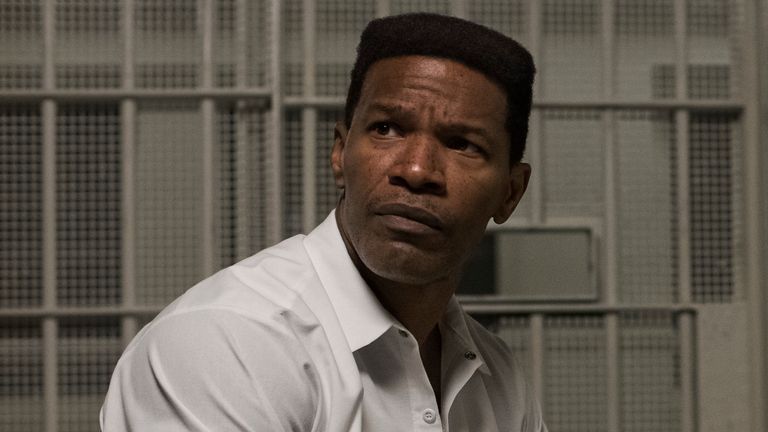
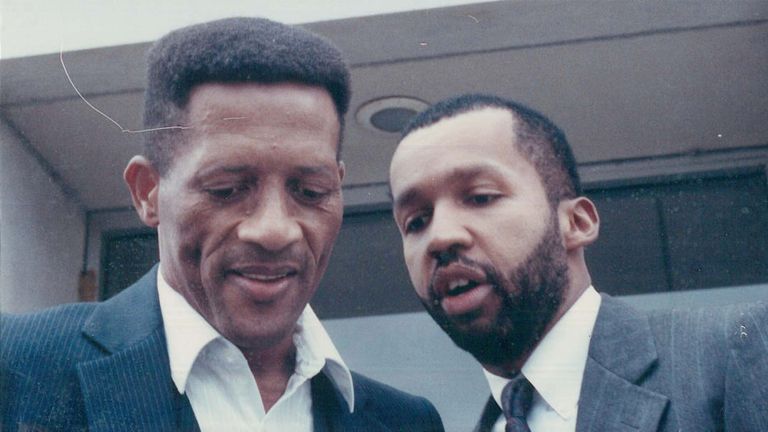


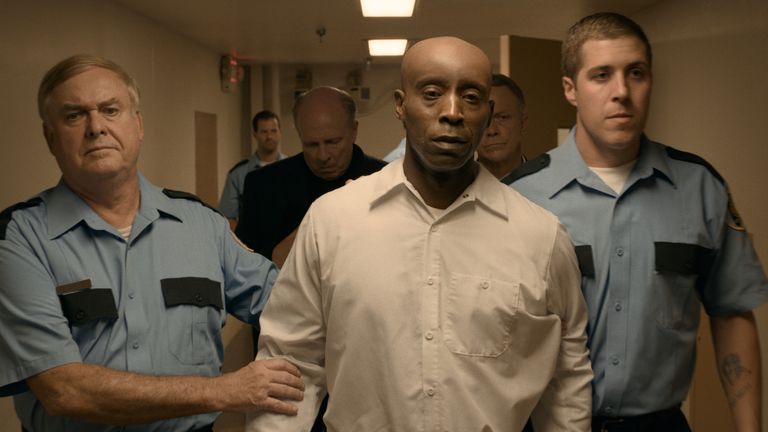
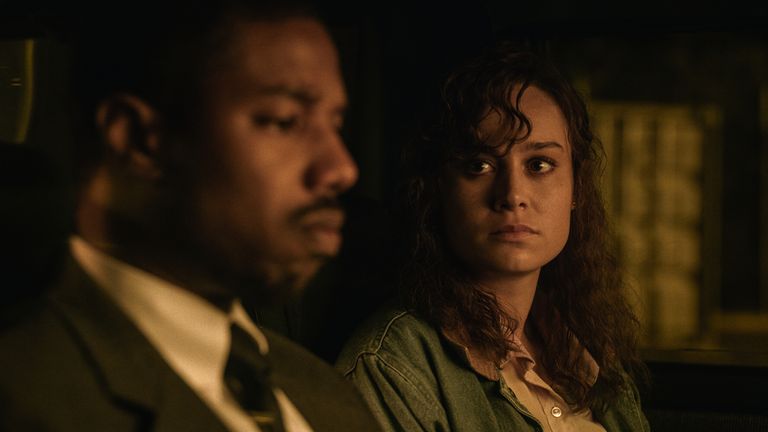
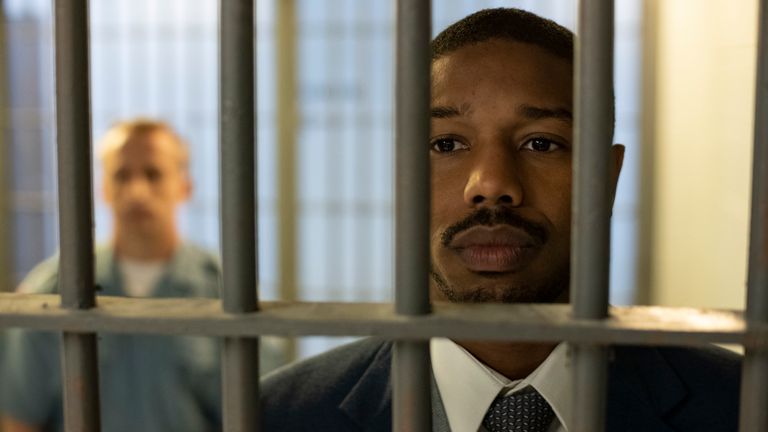
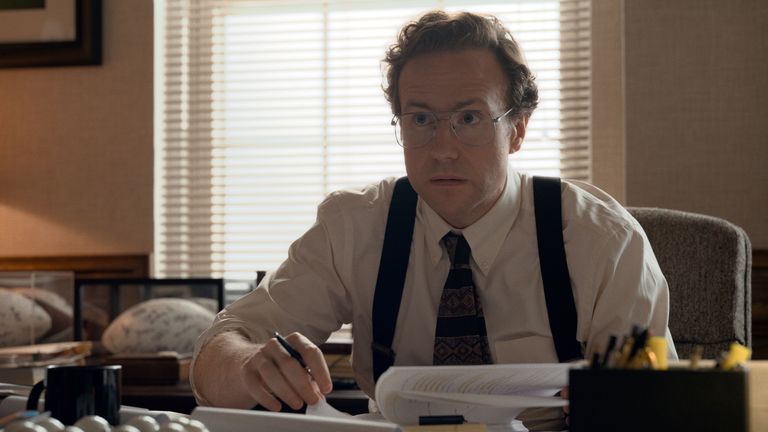














0 Response to "Just Mercy: Sentenced to death for a murder he didn't commit - the true story behind gripping drama - Sky News"
Post a Comment